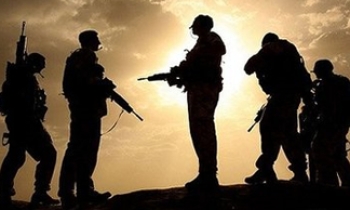The International Federation of Journalists (IFJ) has expressed serious concern over four Afghan journalists being held in detention. Sayed Parvez Kambakhsh, Ghows Zelmay, Jawed Ahmad and Ali Mohaqiq Nasab have been denied human rights including legal representation, the ability to receive visitors and access to time outdoors.
Sayed Parvez Kambakhsh, 23, a journalism student and reporter for the daily Jahan-e Naw, has been transferred to a prison in Kabul as the appeal on his death sentence continues to be processed. Kambakhsh was arrested on October 27, 2007, on charges of blasphemy for allegedly downloading anti-Islamic material from the internet and distributing the materials. The primary court of Balkh province sentenced Kambakhsh to death on January 22 after a closed-door trial in which Kambakhsh was denied legal representation.
On February 6, the President of Afghanistan, Hamid Karzai, pledged his commitment to repeal the death penalty to representatives of IFJ partners—the Afghan Independent Journalists' Association (AIJA) and the Committee to Protect Afghan Journalists (CPAJ). Kambakhsh's case has been widely criticised by the international press freedom and human rights communities.
While there is hope that Kambakhsh will be pardoned by the president, official assurance has not yet been given. He had previously been held in Mazar-i-Sharif, capital of Balkh province.
Ghows Zelmay, a former journalist and spokesman for the attorney-general, was arrested by police on November 4, 2007, on accusations of publishing a Dari translation of the Qur'an, a criminal act under Islamic law.
Zelmay's translation into Dari , the language of Afghanistan, was criticised by conservative religious leaders which led to his arrest in Torkhum, near the border with Pakistan. Religious leaders have called for him to be punished in accordance with Islamic law. Zelmay has been held for five months without charge.
According to AIJA and CPAJ, the conditions of Zelmay's prison cell are appalling. He is detained in a dark room with dozens of other prisoners and criminals, and has no access to writing materials or books and is not permitted outside.
Ali Mohaqiq Nasab, editor of a women's rights magazine in Afghanistan, was reportedly arrested in Iran on March 4 and continues to be held without charge. AIJA said that Nasab, editor of the monthly Haqoq-e-Zan (Women's Rights), was reportedly detained by Iranian officials in Qumm, near the Iranian capital Tehran. Documents, phones and a computer were allegedly confiscated from his home at the time of his arrest.
AIJA reports that Nasab's wife was not able to seek any information about him and officials from Iran's embassy in Kabul would not answer the AIJA's questions. Nasab's wife has been refused the right to visit her husband in prison or talk to him via telephone. Nasab has had no access to the Afghan embassy in Iran.
Local reports suggest Iran's Government will not allow Nasab to have an independent lawyer to defend him. Instead, he will be offered a lawyer from the special religious court of Iran.
Jawed Ahmad, a journalist working for Canadian Television (CTV), is being held without charge at Bagram Air Base. He was detained by United States military forces on September 2, 2007. Ahmad, 22, was arrested at Kandahar airport for reportedly having contacts with local Taliban leaders and possessing a video containing Taliban materials.
Agence France-Presse (AFP) reported that Lt Col David Acceta, spokesman for the American Military at Bagram, confirmed that Ahmad was being detained but maintained that he was "not detained because he is a journalist". IFJ reminded the US military that it is not against the law for journalists to be in contact with multiple sides when reporting in a conflict zone.
"These four serious cases highlight an alarming trend in the treatment of journalists from Afghanistan who report on issues in the public interest," said IFJ Asia-Pacific Director Jacqueline Park. "Journalists play an essential role in promoting the rights of all in a free and open democratic society and must not fear unwarranted arrests as a result of conducting their profession."









